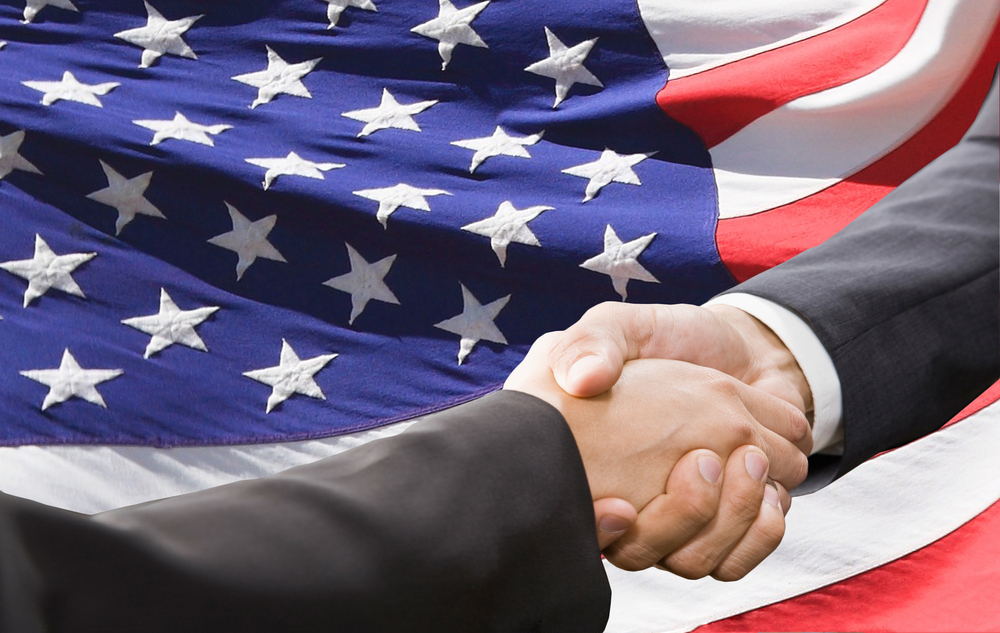5 Tips for Managing Relationships in an Election Year
 Politics – the great taboo to be silenced unless you’re a paid pundit with 24/7 programming in which case “game on” ad naseam. For the rest of us, political topics are hard to navigate because of the passions they ignite in all but the most tepid among us. A Presidential election year amplifies these passions and causes tension and divisiveness even among the closest most amicable friends. I have friends that are far right, far left and just about every shade of red, pink, blue and baby blue in between. So what do we do? We could subscribe to the idea that politics isn’t to be discussed – a rule I completely disagree with. This is a democracy and I believe that public discourse is important to a healthy one. Instead, I prefer to set a few ground rules hard learned from some of my own mistakes and mistakes of friends in the past.
Politics – the great taboo to be silenced unless you’re a paid pundit with 24/7 programming in which case “game on” ad naseam. For the rest of us, political topics are hard to navigate because of the passions they ignite in all but the most tepid among us. A Presidential election year amplifies these passions and causes tension and divisiveness even among the closest most amicable friends. I have friends that are far right, far left and just about every shade of red, pink, blue and baby blue in between. So what do we do? We could subscribe to the idea that politics isn’t to be discussed – a rule I completely disagree with. This is a democracy and I believe that public discourse is important to a healthy one. Instead, I prefer to set a few ground rules hard learned from some of my own mistakes and mistakes of friends in the past.
Here are a few tips for managing our differences in what continues to be yet another divisive year.
1. When posting about or discussing candidates or political topics, be positive and affirmative without attacking the other side. This is so hard to do at times and I have broken this rule in the past but I try mightily these days to keep it clean with friends and relatives. I’m a passionate person with strong opinions but I realized that my most treasured forces of change have been those that bridge the divide with diplomacy and peace seeking tactics not sarcasm, word bombs and offensive memes.
2. Keep on scrolling. If you see a post that you don’t like try to ignore it. I know, also hard to do. Perhaps consider the source and decide whether it is worth responding. I have a handful of friends with very different political leanings and we will respond to each other’s posts and have political discussions during outings. We actually enjoy the discourse. Some people, however, take disagreement with their political views as a personal attack and will launch a counter attack that simply isn’t worth dealing with which leads me to my next tip.
3. Stick to the issues and don’t make it personal. Name calling and personal attacks have no place among friends. When a “friend” of mine found out how I was voting in the last presidential election she insulted me as a mother and told me not to send my kids to college. What? Remember to put your friendships first and accept that a democracy’s pluses outweigh its minuses. Every time your friend posts that she’s voting for the other person she is participating in our democracy even if her views make you want to put a clothespin on your nose. You can disagree with a position without attacking the other person.
4. Don’t post or talk about politics all of the time. Make room for other topics whether in person or online. People in business will only make a small percentage of their online posts or discussions with friends about their business to avoid being boorish. Apply the same rule of thumb to your political content.
5. Be a grown up. Accept that the world is a very large and diverse place and people will think differently than you do. Does this mean that you have to accept their points of view? Absolutely not. You may even realize that your differences are in fact too great to overcome and honestly, that’s okay too. Sometimes someone’s politics is actually a symbol of bad character, for example, if you find out your friend is genuinely racist or sexist you might factor that into your friendship. On the other hand just because your friend is voting for “that guy” or “her” doesn’t mean that your friendship needs to experience an existential crisis.
So, at least until November, just keep the clothes pins handy, keep it clean (don’t we wish the candidates would) and raise your glass to the great, hard won freedom to disagree, assuming of course that you can agree on the most important thing in life – whether to pour red or white.



















